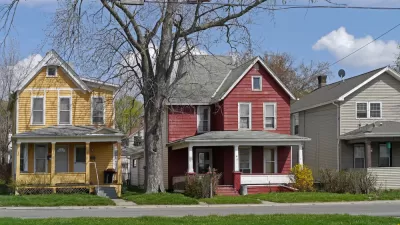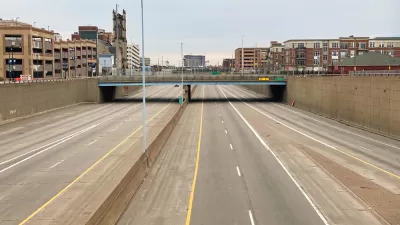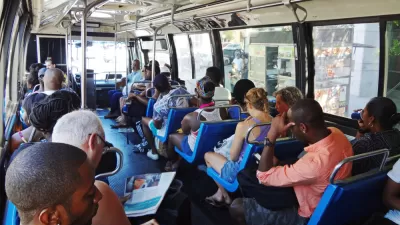The good news is that middle-class suburbs are becoming increasingly integrated. However, a closer look at the migration patterns of whites and minorities reveals a more complex picture, rife with racism.

In a post for Wonkblog, Emily Badger describes the town of Oak Park, a small suburb just beyond the western city limits of Chicago. While efforts made across the country have been successful at diversifying traditionally white neighborhoods, the challenges faced by the Oak Park Regional Housing Center illustrate how race-based preferences of white house-hunters keep traditionally black neighborhoods isolated.
"People walk in with mental maps and memories of stories they saw on a blog and rumors they’ve once been told. Don’t live on the east side of Oak Park," Badger writes. Research shows that it is no coincidence that the undesirable east side of Oak Park is predominantly black. Dan Keating presents a wealth of comparable findings in cities such as St. Louis, Detroit, and Washington, D.C. "Many major cities have great disparities between the trend of whites living in more diverse neighborhoods and blacks living with persistent segregation," Keating writes.
According to sociologists Maria Krysan and Michael D. M. Bader, these preferences are based on racial blind spots. In their recent study, participants were asked to watch a video clip that panned the streets of a middle-class neighborhood in Detroit. They employed white and black actors to populate the neighborhood. "In the study, whites were more likely to positively rate a neighborhood with white residents in it than they did the identical neighborhood when the people collecting the morning paper or walking the sidewalks were black."
The Oak Park non-profit works to help white professionals look beyond their racial blind spots by introducing them to safe and affordable neighborhoods they may not previously have been aware of. Indeed, the Krysan-Bader study finds "strong evidence that community knowledge is shaped by race—both of the resident and of the target community." Desegregation policies may be helping minorities to have access to white neighborhoods, but the approach taken in Oak Park goes one step further. "It's not costly and controversial new construction. It's marketing. It’s about, among other things, being publicly explicit that a community wants diversity."
FULL STORY: How race still influences where we choose to live

Planetizen Federal Action Tracker
A weekly monitor of how Trump’s orders and actions are impacting planners and planning in America.

Maui's Vacation Rental Debate Turns Ugly
Verbal attacks, misinformation campaigns and fistfights plague a high-stakes debate to convert thousands of vacation rentals into long-term housing.

Restaurant Patios Were a Pandemic Win — Why Were They so Hard to Keep?
Social distancing requirements and changes in travel patterns prompted cities to pilot new uses for street and sidewalk space. Then it got complicated.

In California Battle of Housing vs. Environment, Housing Just Won
A new state law significantly limits the power of CEQA, an environmental review law that served as a powerful tool for blocking new development.

Boulder Eliminates Parking Minimums Citywide
Officials estimate the cost of building a single underground parking space at up to $100,000.

Orange County, Florida Adopts Largest US “Sprawl Repair” Code
The ‘Orange Code’ seeks to rectify decades of sprawl-inducing, car-oriented development.
Urban Design for Planners 1: Software Tools
This six-course series explores essential urban design concepts using open source software and equips planners with the tools they need to participate fully in the urban design process.
Planning for Universal Design
Learn the tools for implementing Universal Design in planning regulations.
Heyer Gruel & Associates PA
JM Goldson LLC
Custer County Colorado
City of Camden Redevelopment Agency
City of Astoria
Transportation Research & Education Center (TREC) at Portland State University
Jefferson Parish Government
Camden Redevelopment Agency
City of Claremont





























